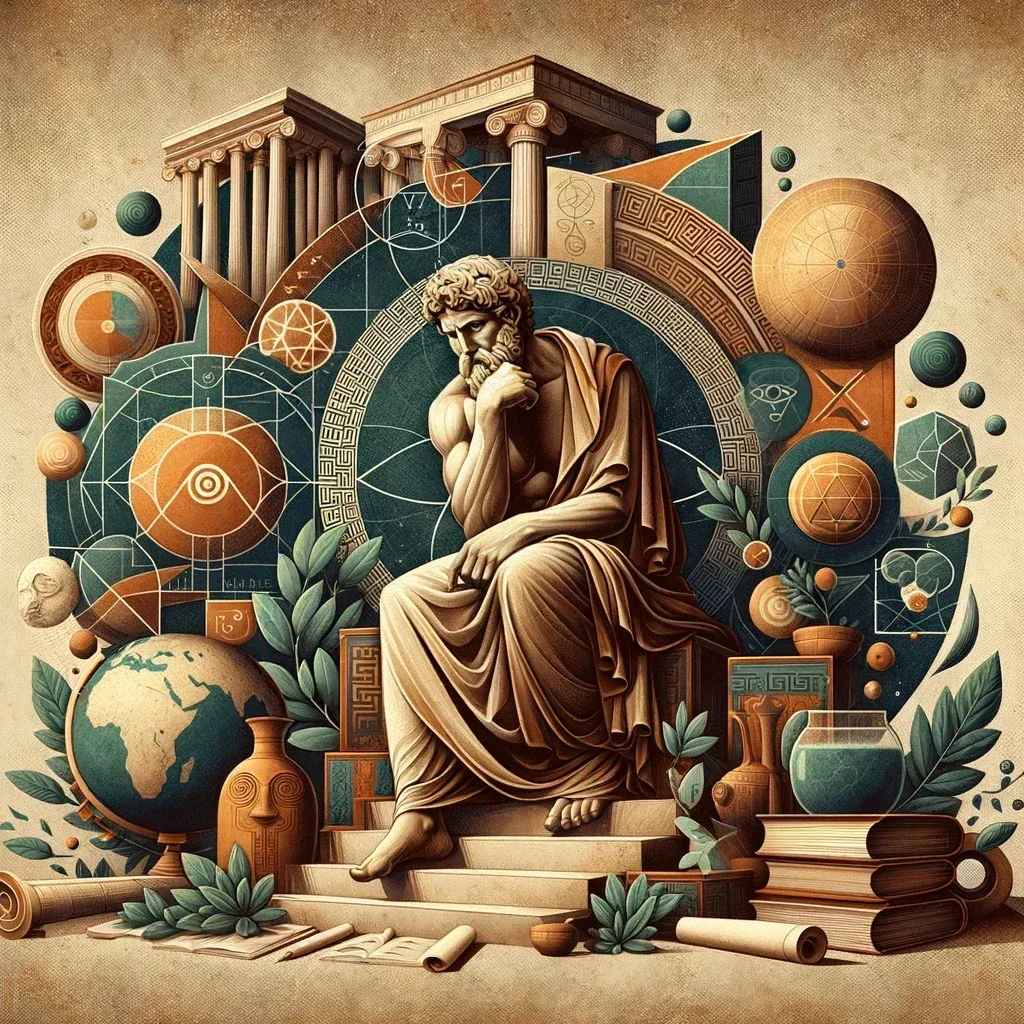Stoic philosophy, originating in Ancient Greece, is known for its profound ideas about ethics and nature. A central issue within this philosophy is the conception of matter and spirit. The question “Is everything matter for the Stoic?” leads us to explore the nuances of the Stoic view of the universe, highlighting the complexity of its teachings and the relevance for contemporary understanding of the world.
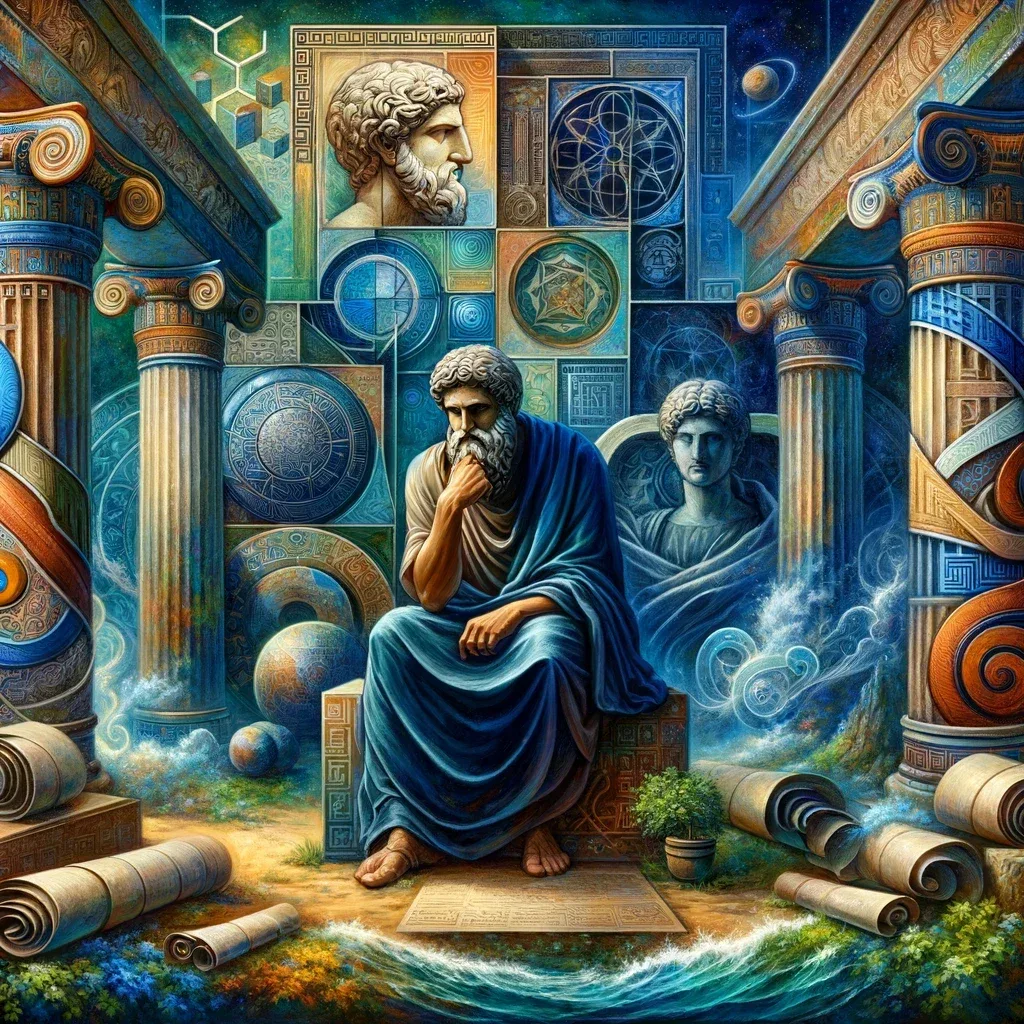
The Concept of Matter in Stoic Philosophy

Origins and Influences
Stoicism, founded by Zeno of Cicius, was heavily influenced by earlier philosophers such as Heraclitus, who saw the world as constantly flux and changing. This vision impacted the Stoic perception of matter, seen not only as a physical substance, but also as a means of constant transformation.
Matter and 'Logos'
For the Stoics, matter is not just a physical entity; it is permeated by the 'Logos', a rational force that orders the universe. Thus, matter is seen as interconnected and animated by this universal reason, leading to a more holistic and dynamic understanding of the material world.
The Interconnection of Matter and Spirit
Unlike other philosophical schools that separate matter and spirit, the Stoics see them as interdependent aspects of the same reality. The spirit, or pneuma, is what gives form and life to matter, suggesting a more integrated view of the universe.
Ethical Implications of the Stoic View of Matter
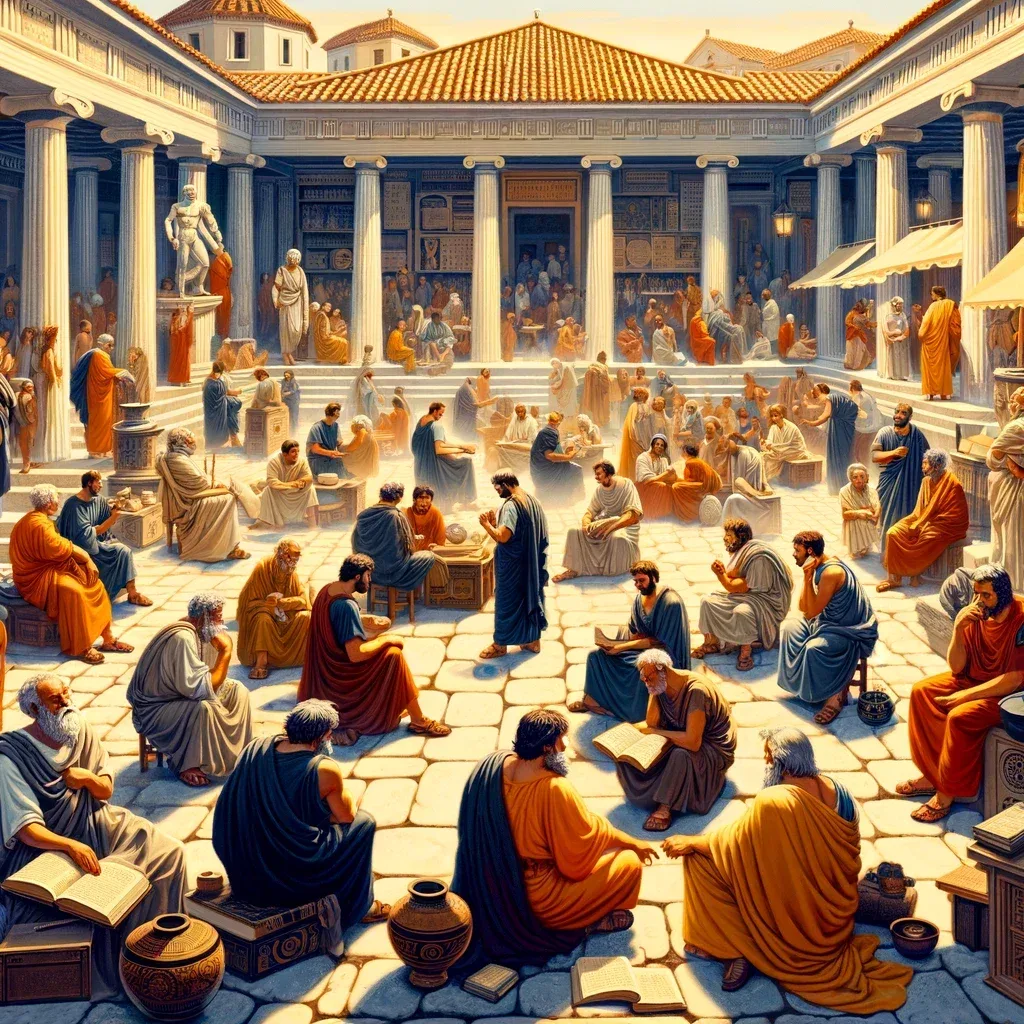
The Role of Nature in Ethics
In Stoic ethics, living in accordance with nature is fundamental. This vision implies harmony with the material world and its laws, which guides the behavior and ethical choices of individuals.
Self-Discipline and Control
The understanding that everything is interconnected and governed by 'Logos' leads to a strong emphasis on self-discipline and controlling passions. Matter, therefore, is not seen as something to be despised, but as a field for the practice of virtue.
The Quest for Ataraxia
Ataraxia, or peace of mind, is achieved when living in harmony with nature. This Stoic idea suggests that understanding and accepting the material world as it is, governed by reason, leads to tranquility.
Matter and Spirit in Stoic Cosmology
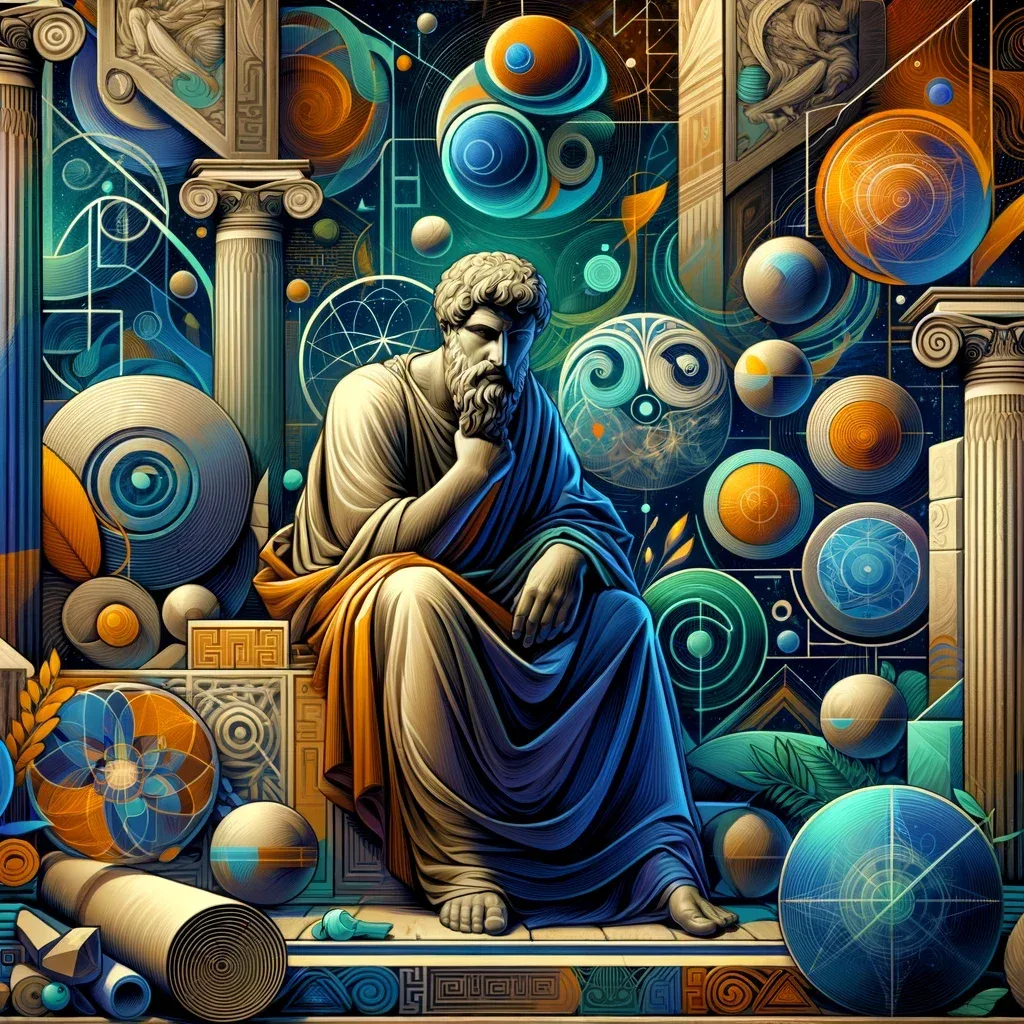
The Universe as a Living Organism
Stoics see the universe as a living organism, in which matter and spirit coexist and cooperate. This view has profound implications for the way we understand our place in the world.
The Pneuma Concept
The pneuma, or spirit, is what infuses matter with life and order. This conception expands the idea of matter beyond the tangible, integrating spiritual and physical aspects into a unified reality.
Destiny and Providence
Matter, moved and ordered by the 'Logos', follows a predefined destiny, leading to a stoic view of providence and determinism. This does not eliminate human freedom, but contextualizes it within an ordered universe.
Conclusion
The question “Is everything matter to the Stoic?” opens up a vast field of discussion about how this ancient philosophy sees the world. Far from a simplistic materialist vision, the Stoics present a perspective where matter and spirit, body and reason, are intrinsically linked. This view offers valuable insights into contemporary understanding of the world, emphasizing interconnectedness, natural order, and the importance of ethics and self-discipline.
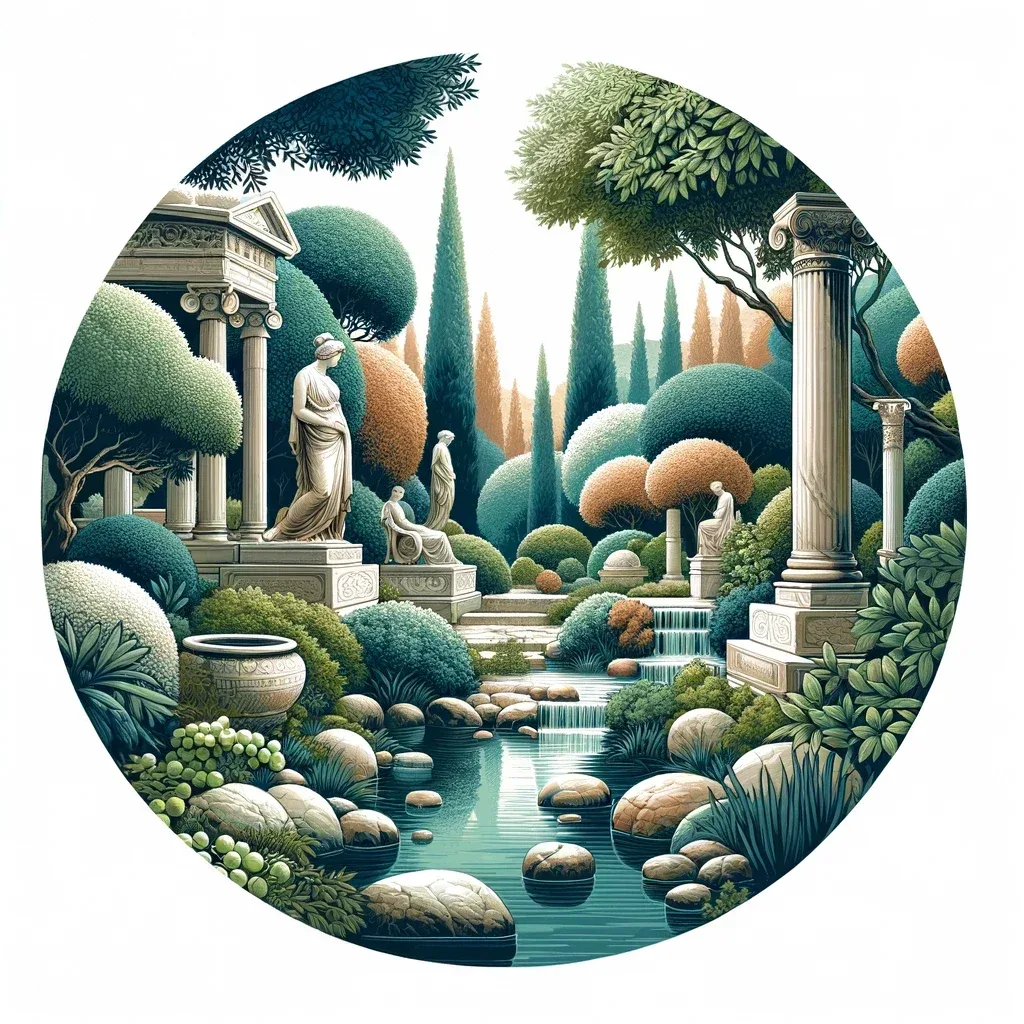
1. What does Stoic philosophy say about matter?
2. What is the relationship between matter and spirit in Stoicism?
3. How does the Stoic view of matter influence your ethics?
4. What is ataraxia in Stoic philosophy?
5. Do Stoics believe in a deterministic universe?
6. What is the origin of Stoicism?
7. What is the 'Logos' in Stoic philosophy?
8. How does Stoicism view pneuma or spirit?
9. How does Stoic ethics relate to matter?
10. Does Stoicism consider matter to be good or bad?
